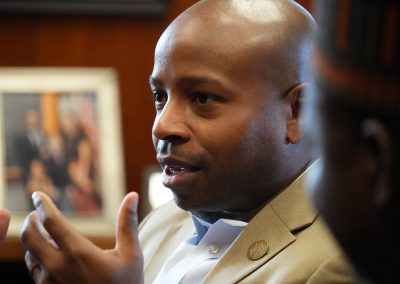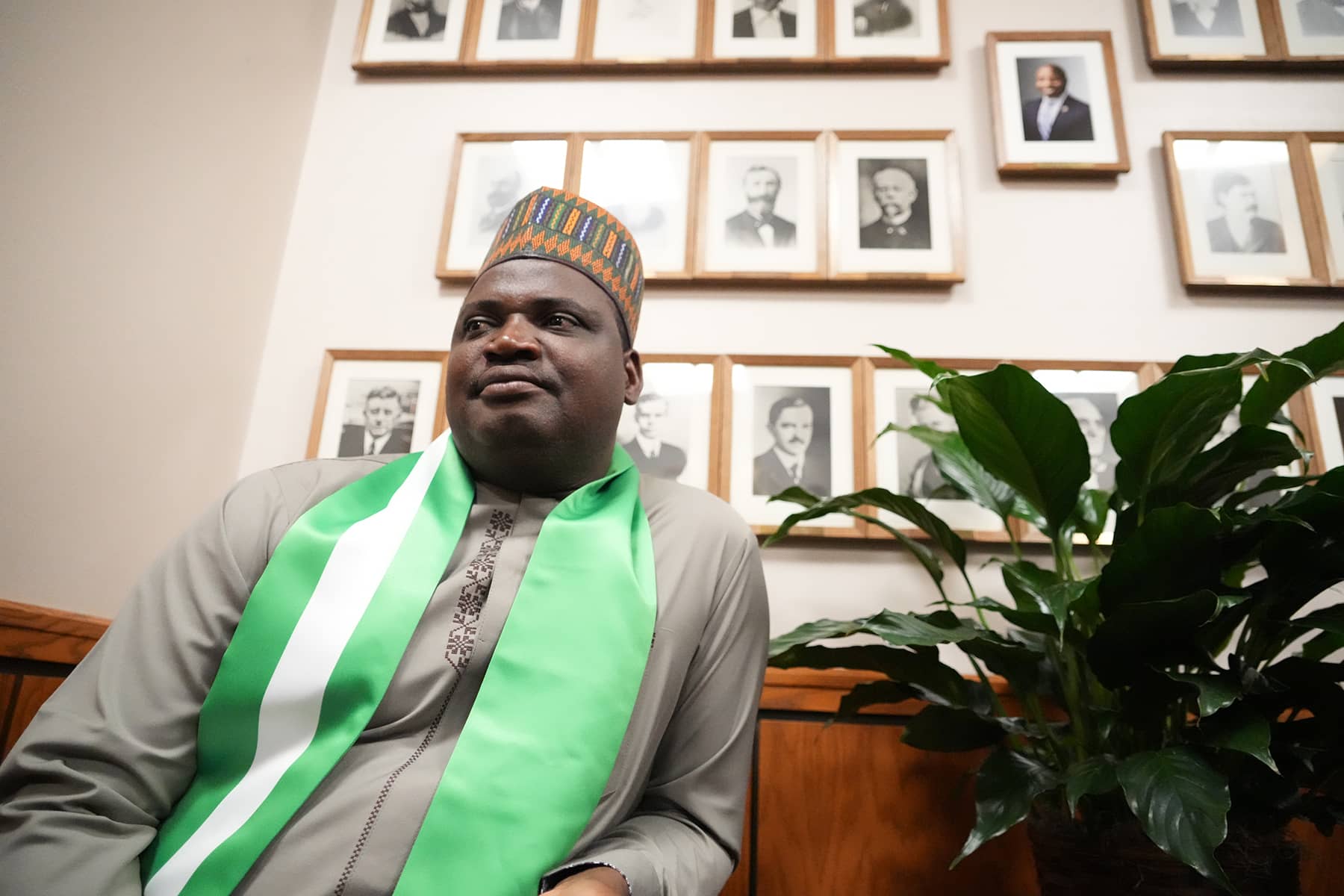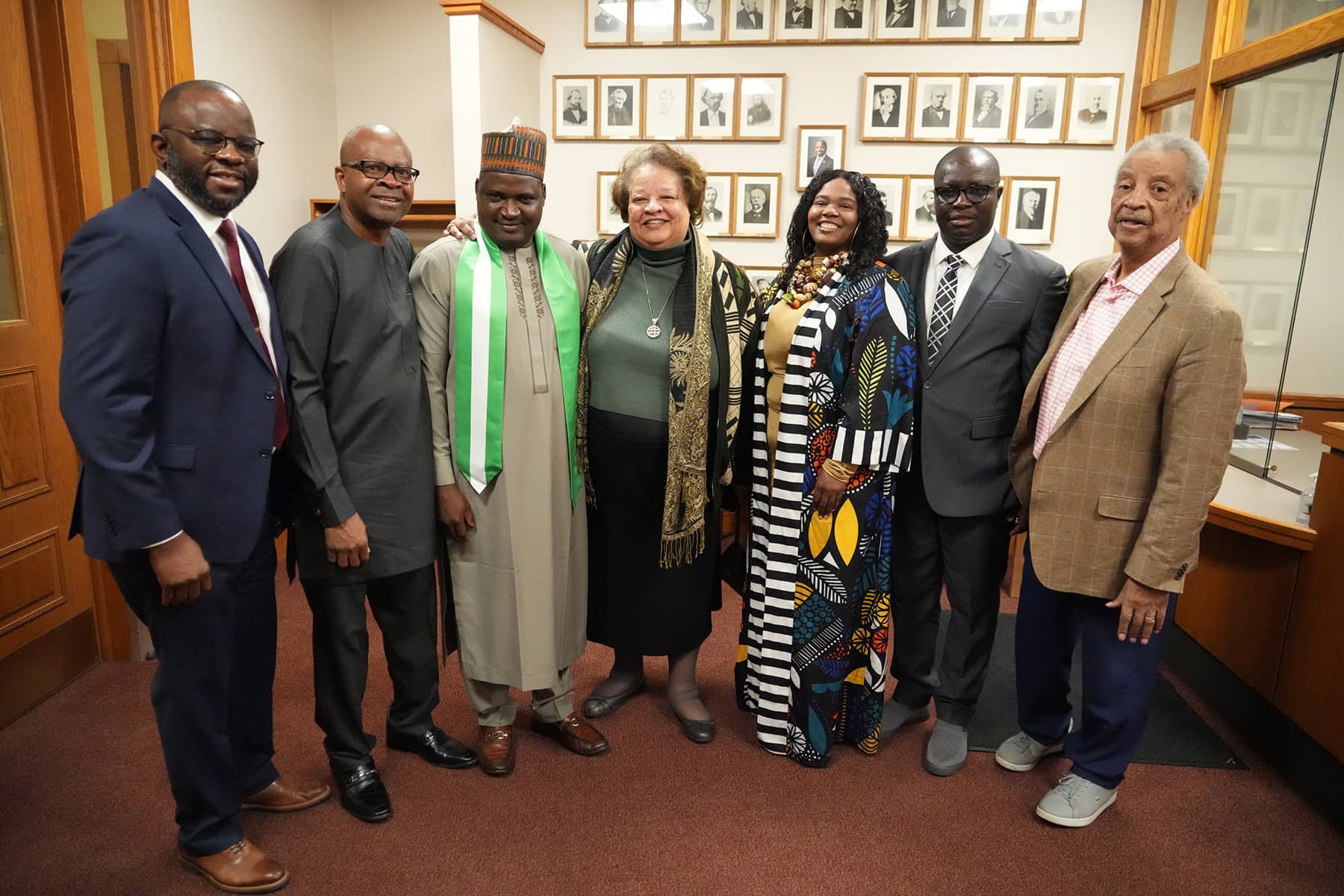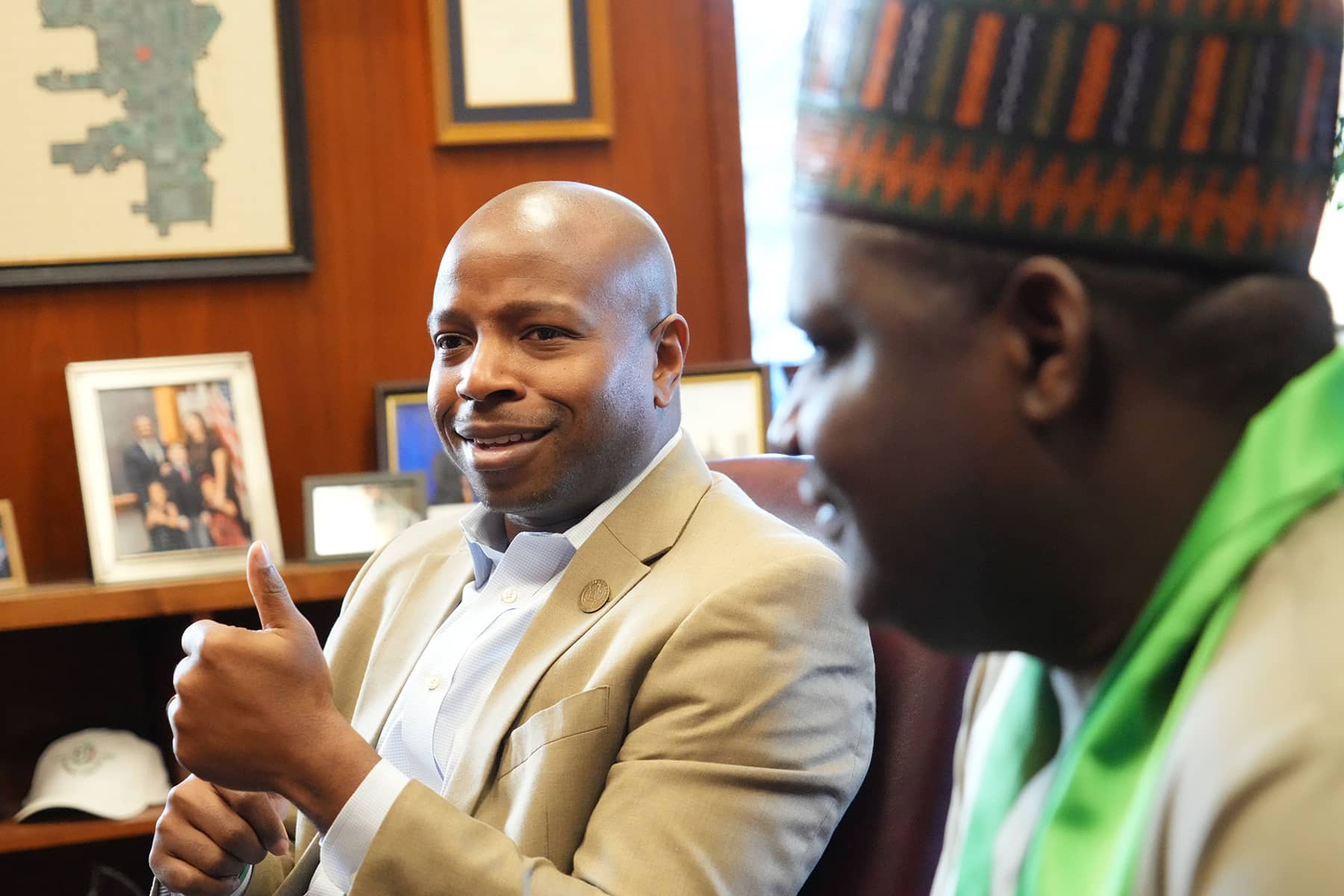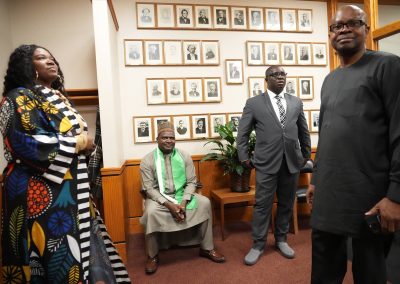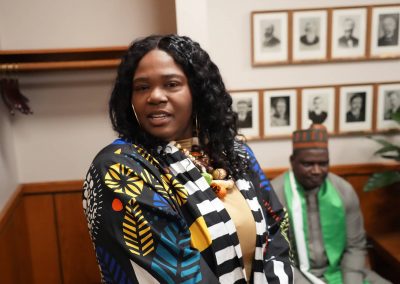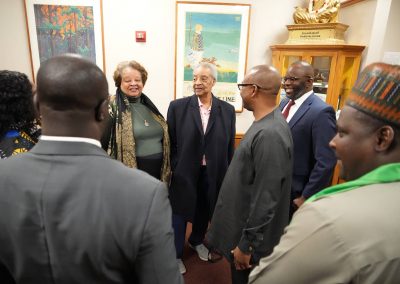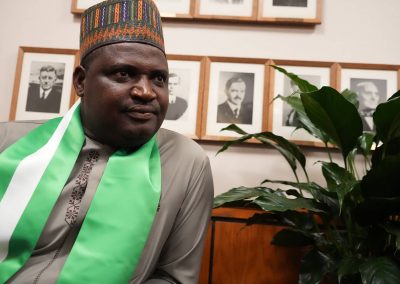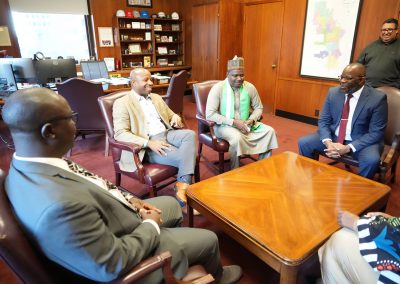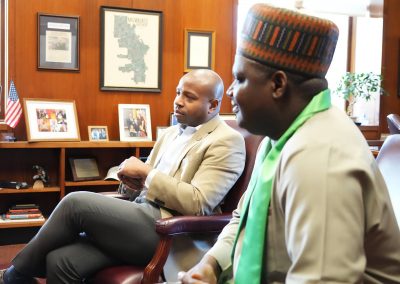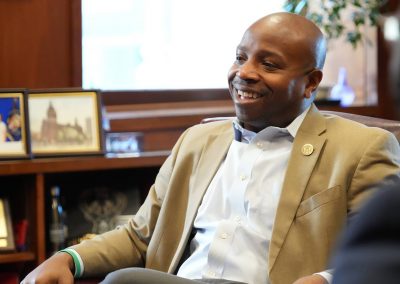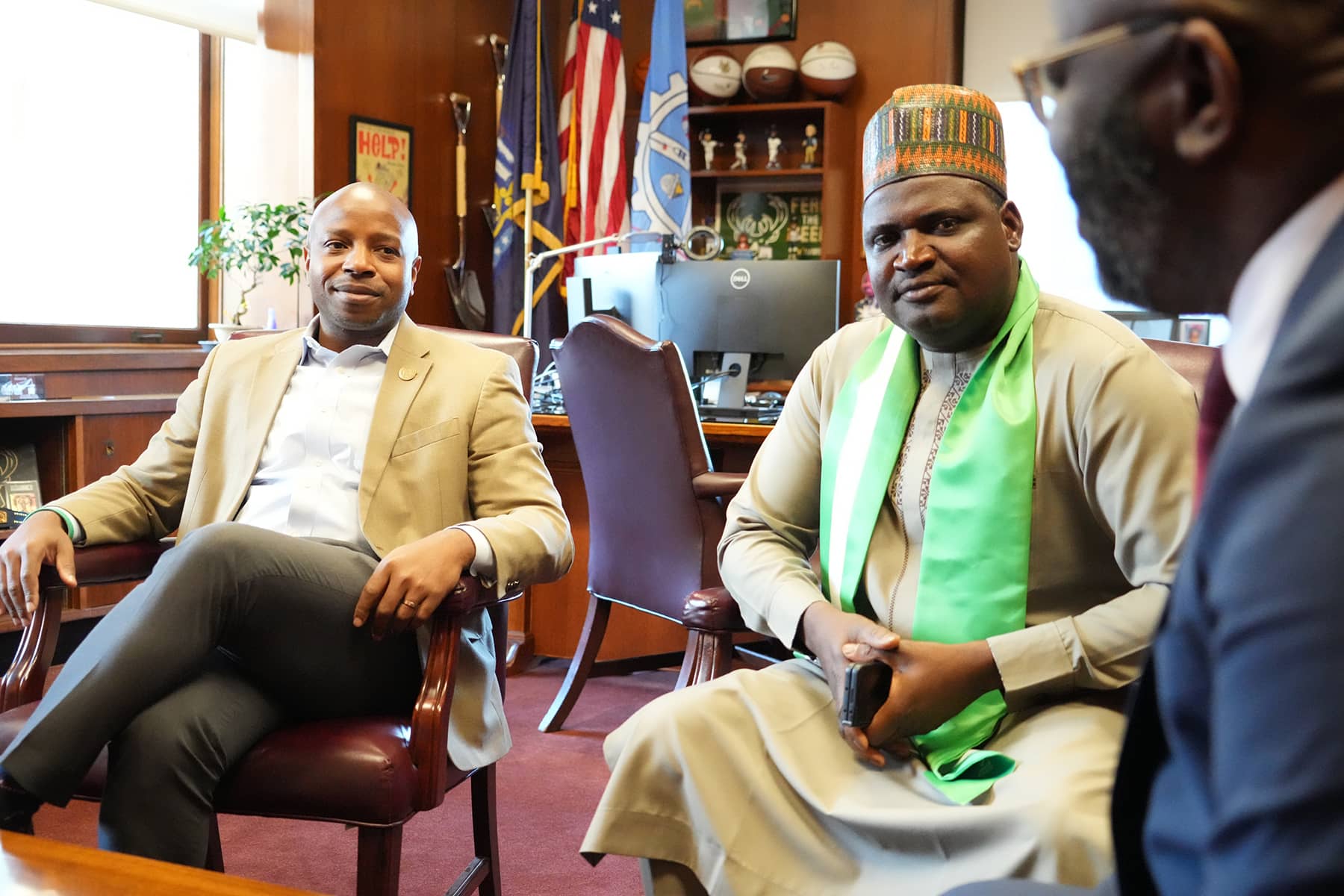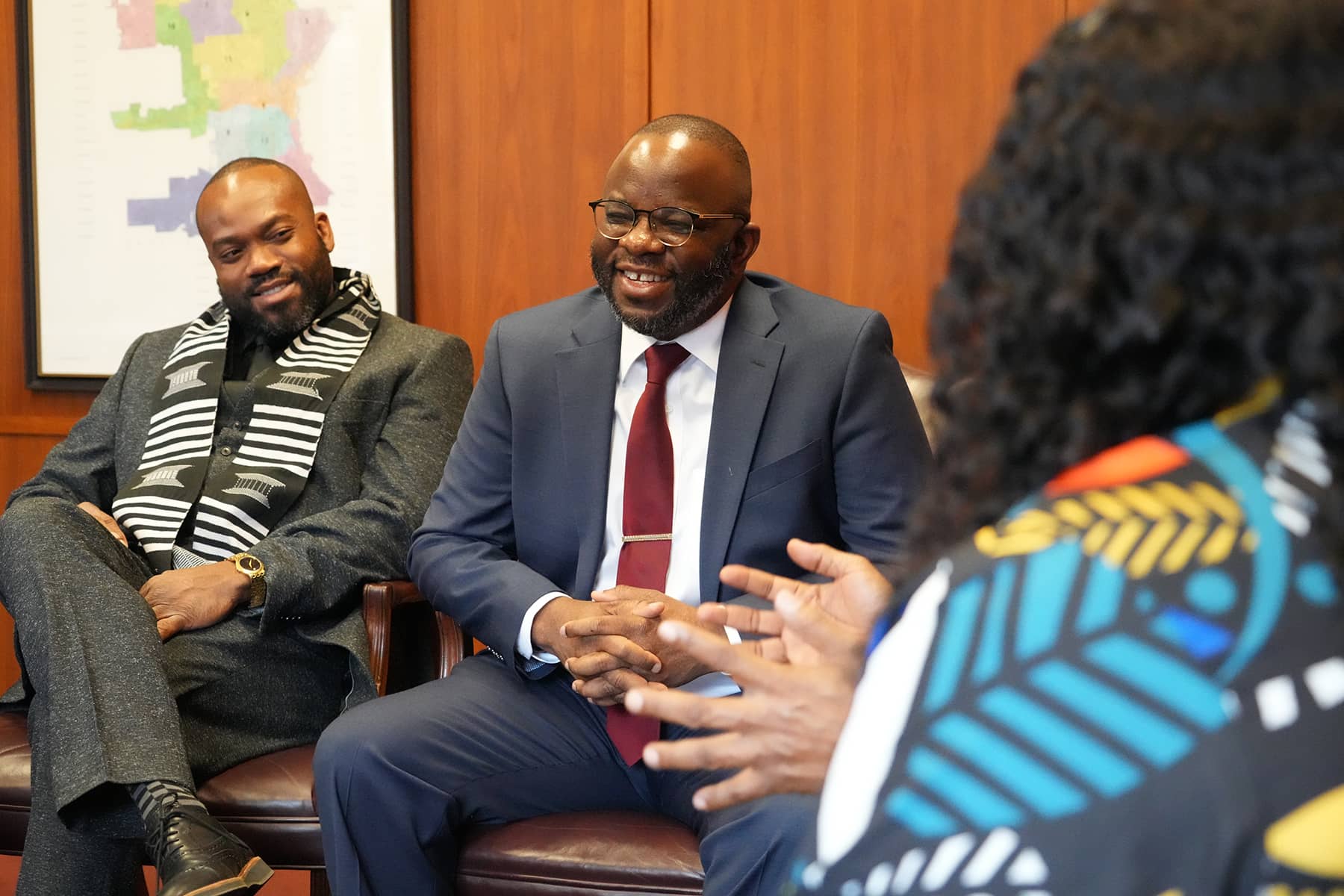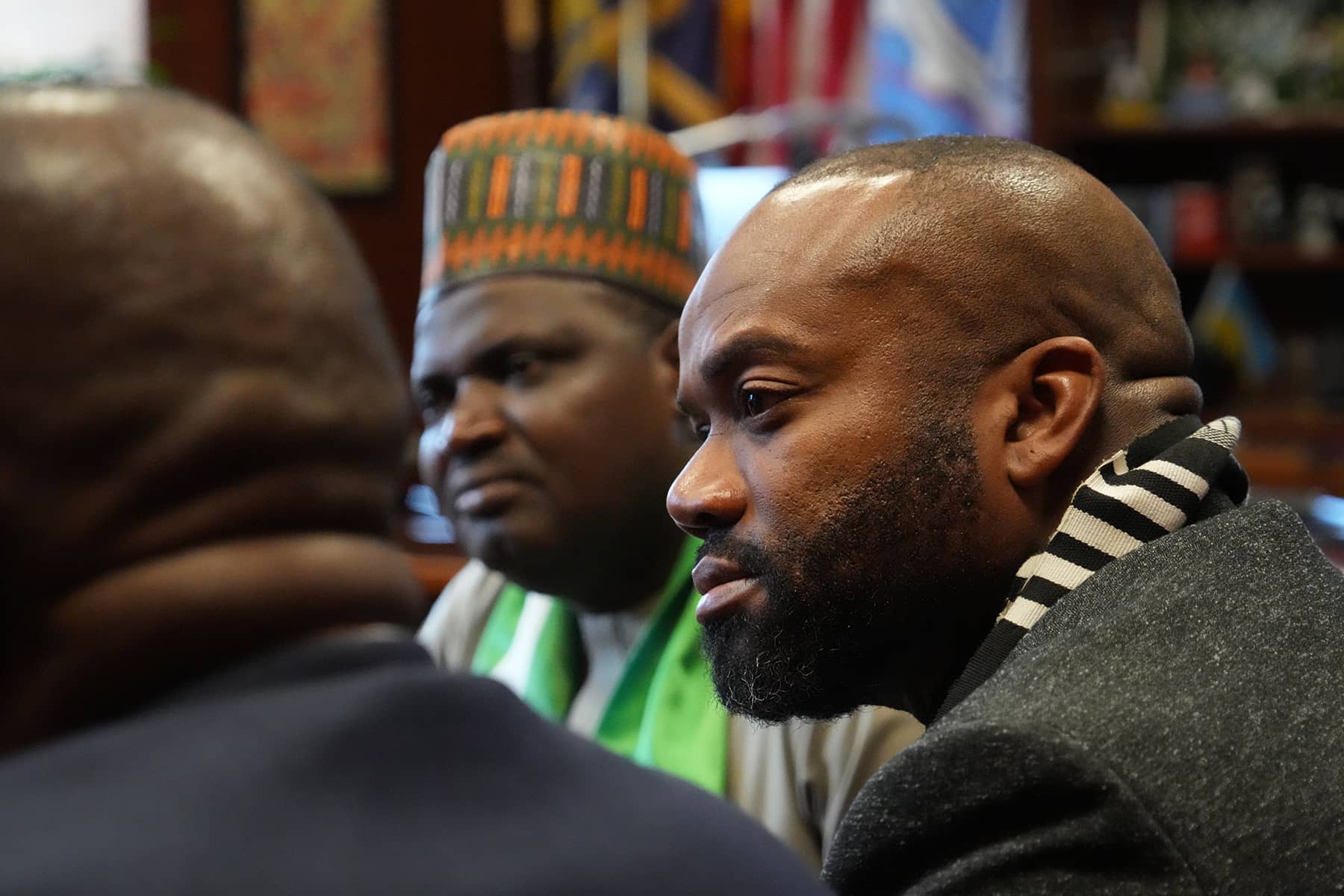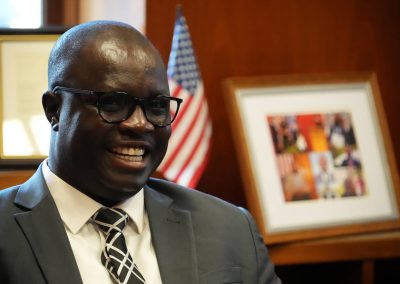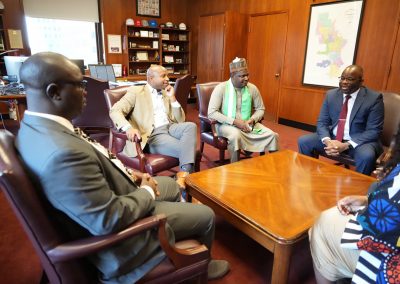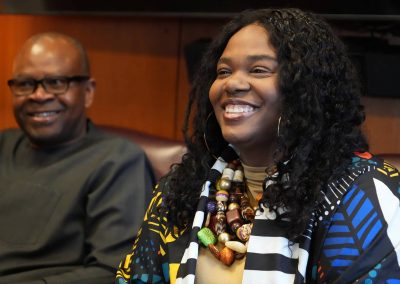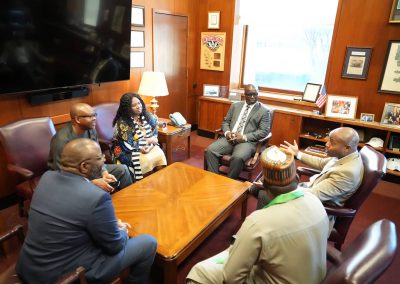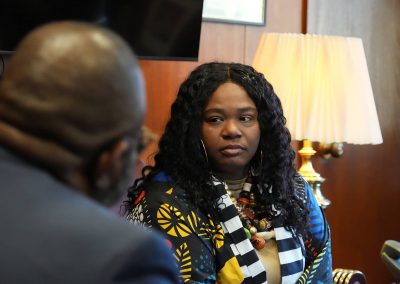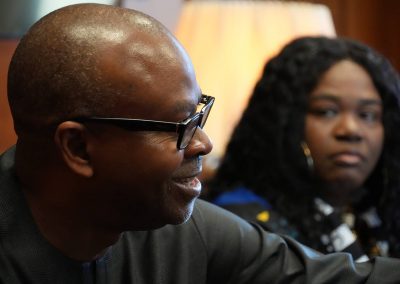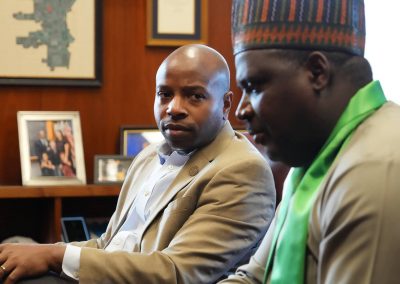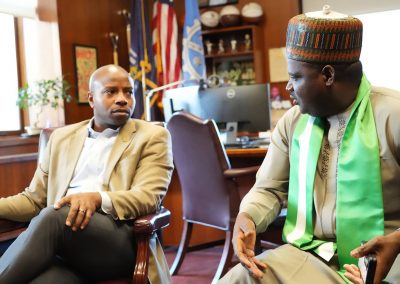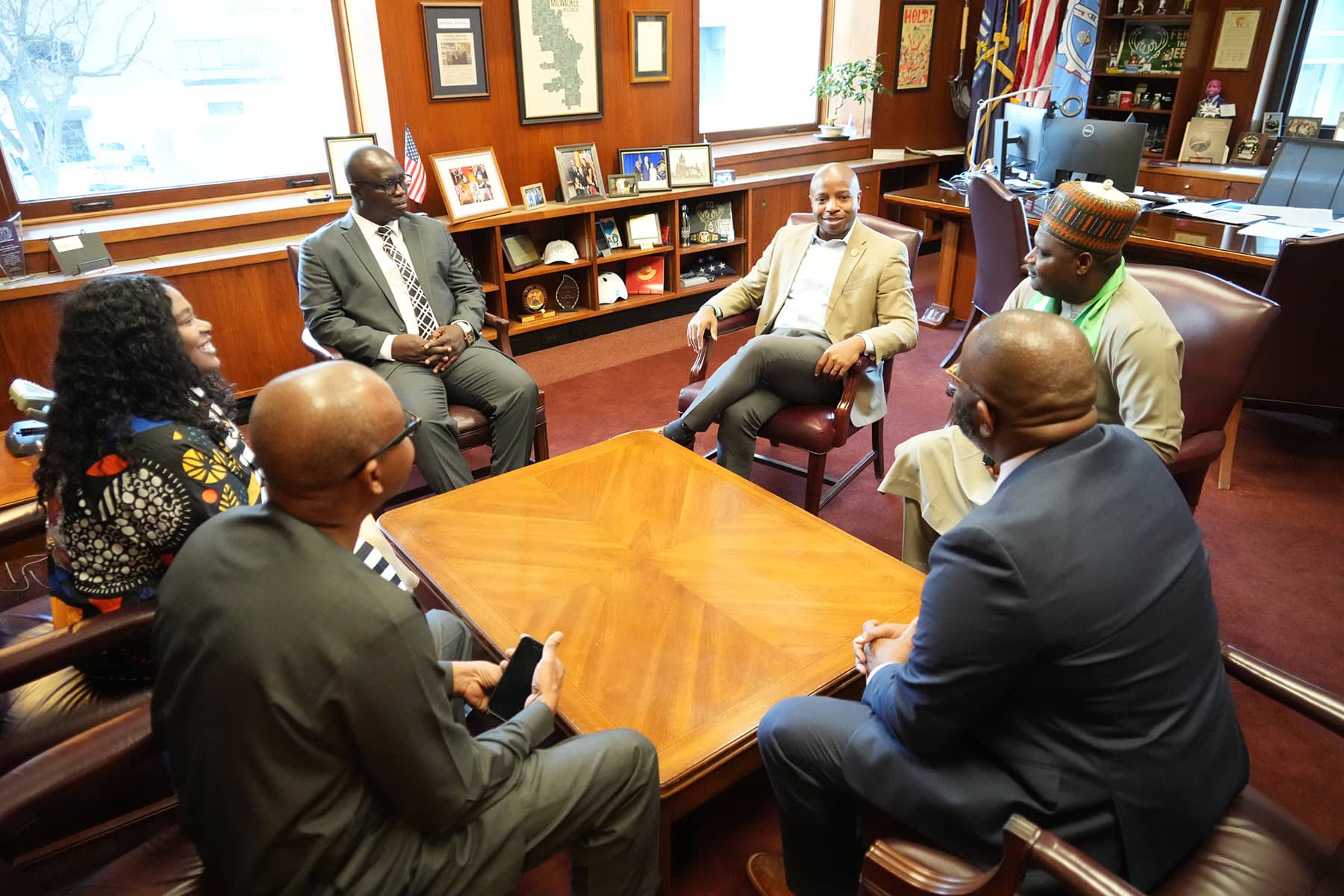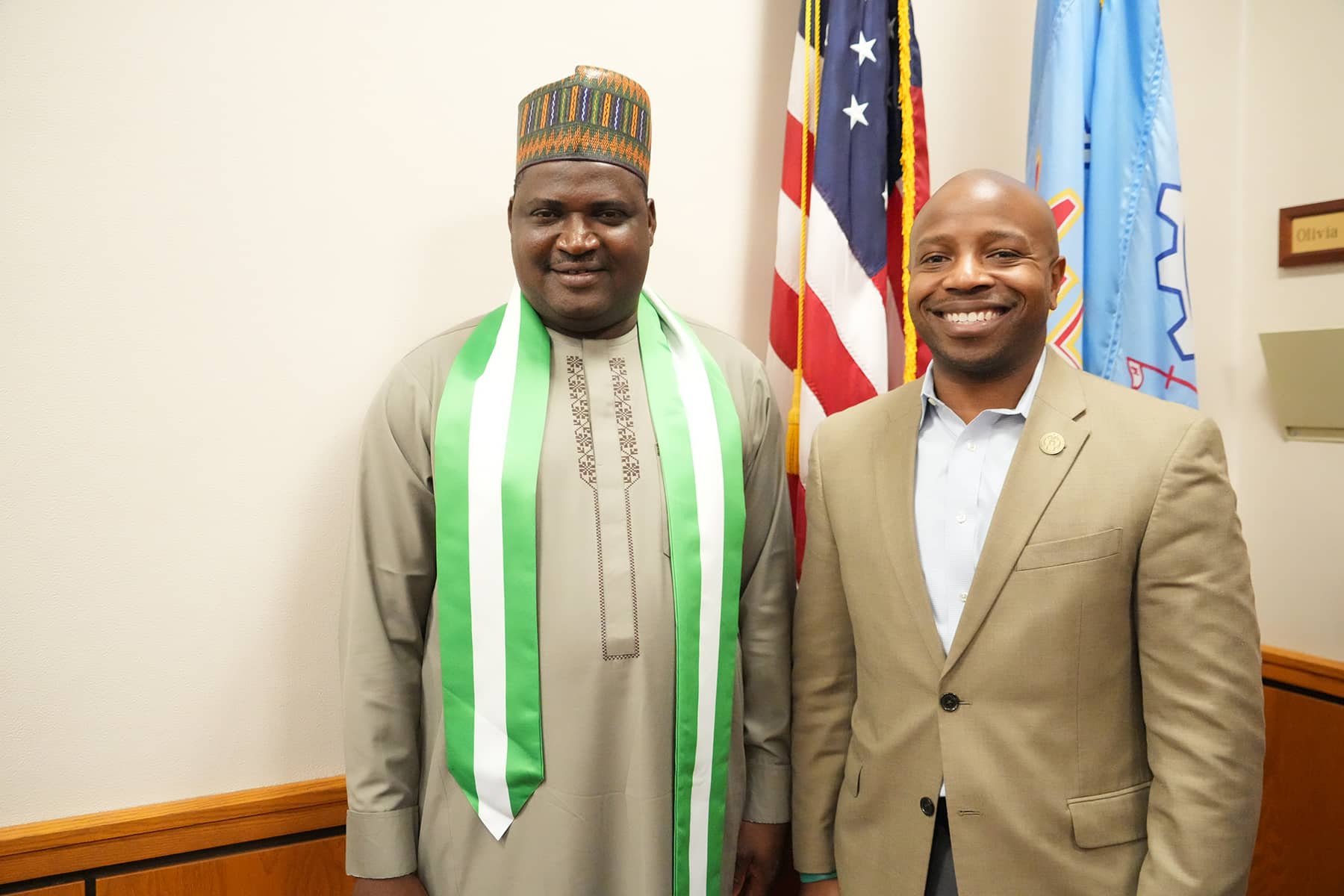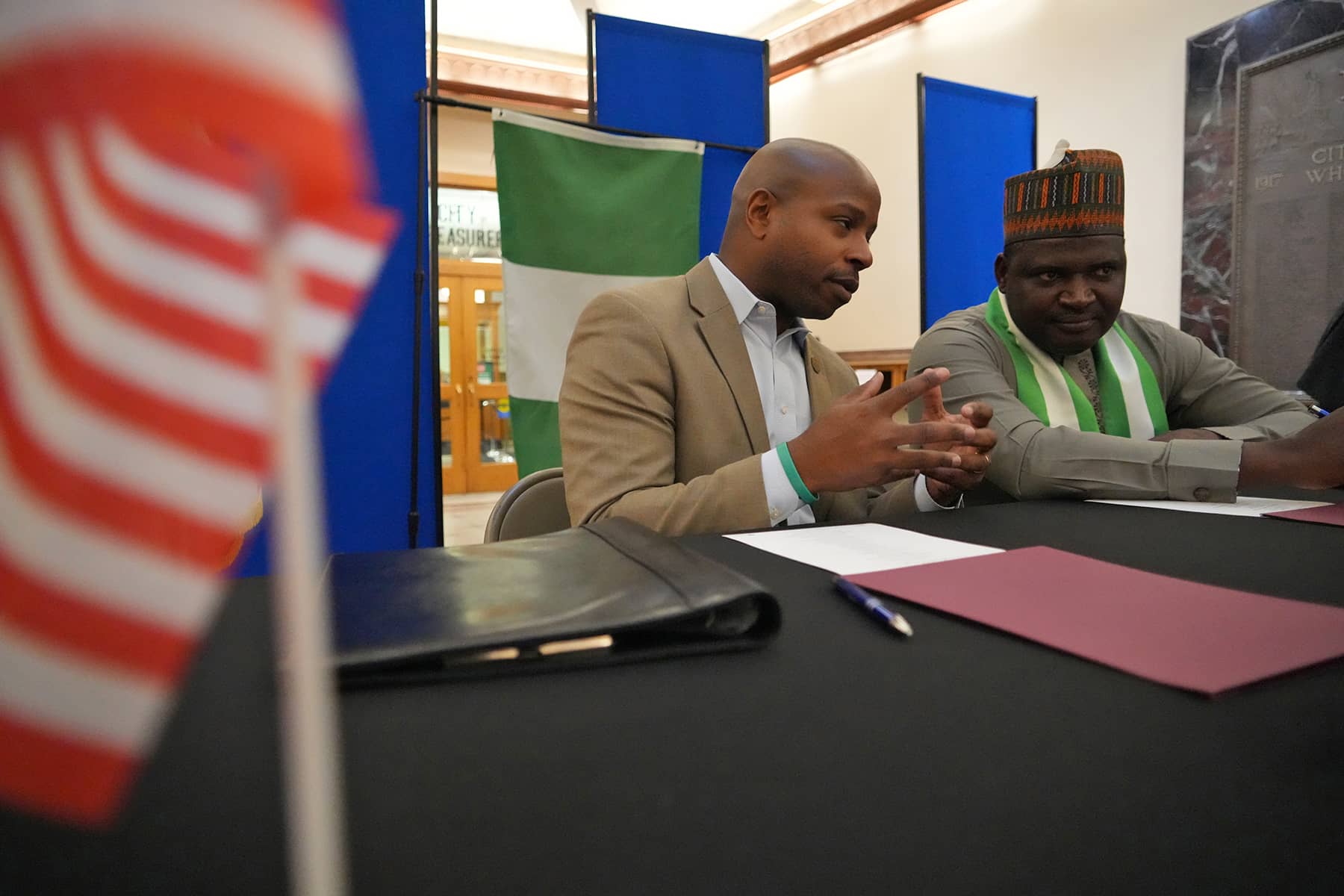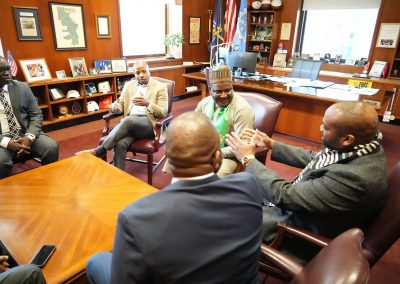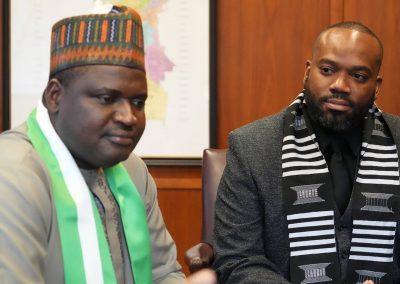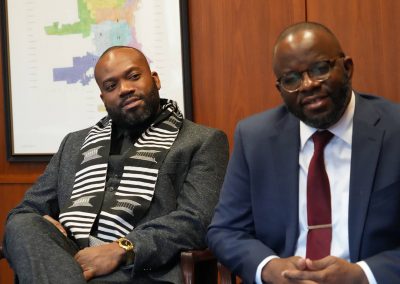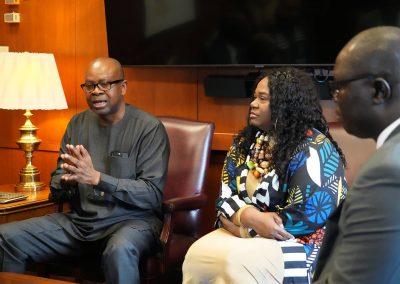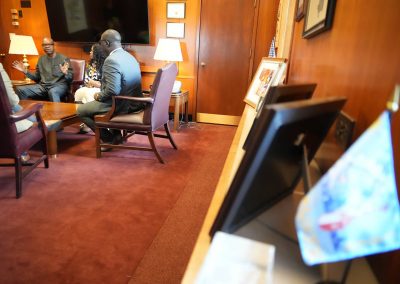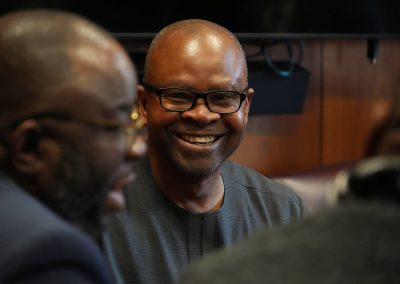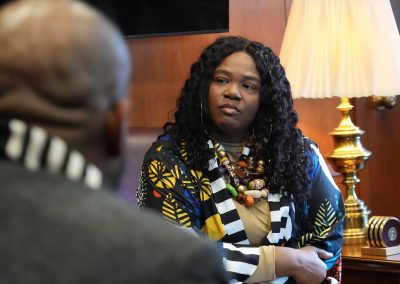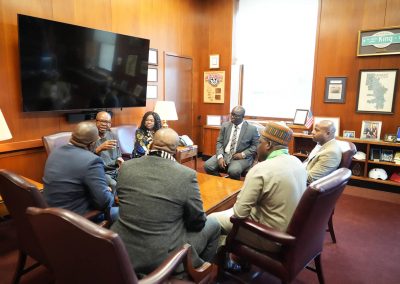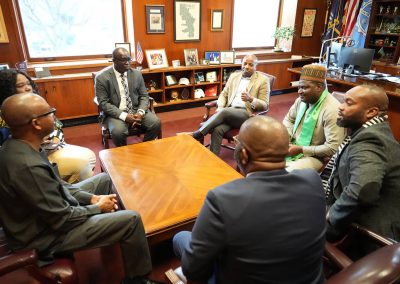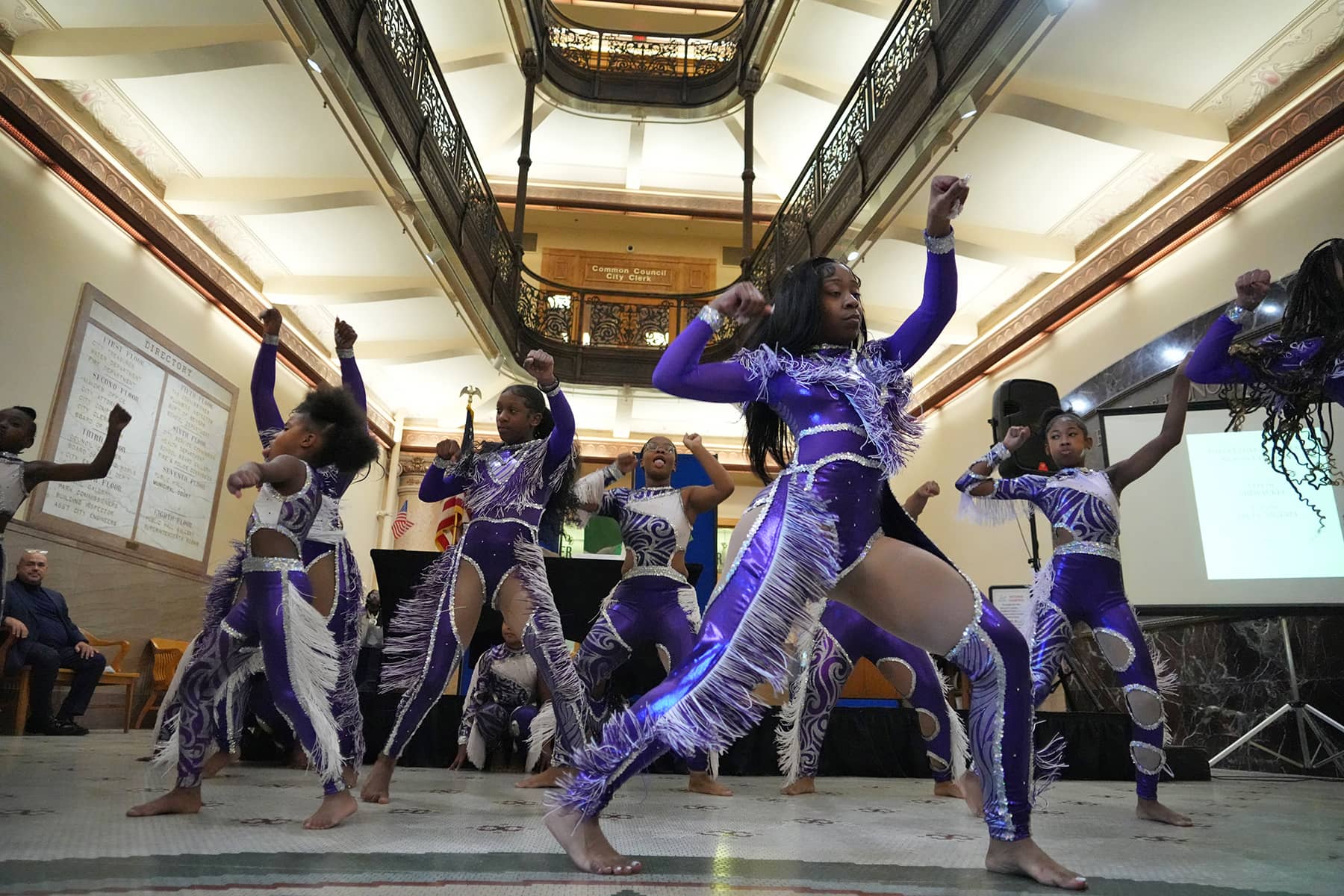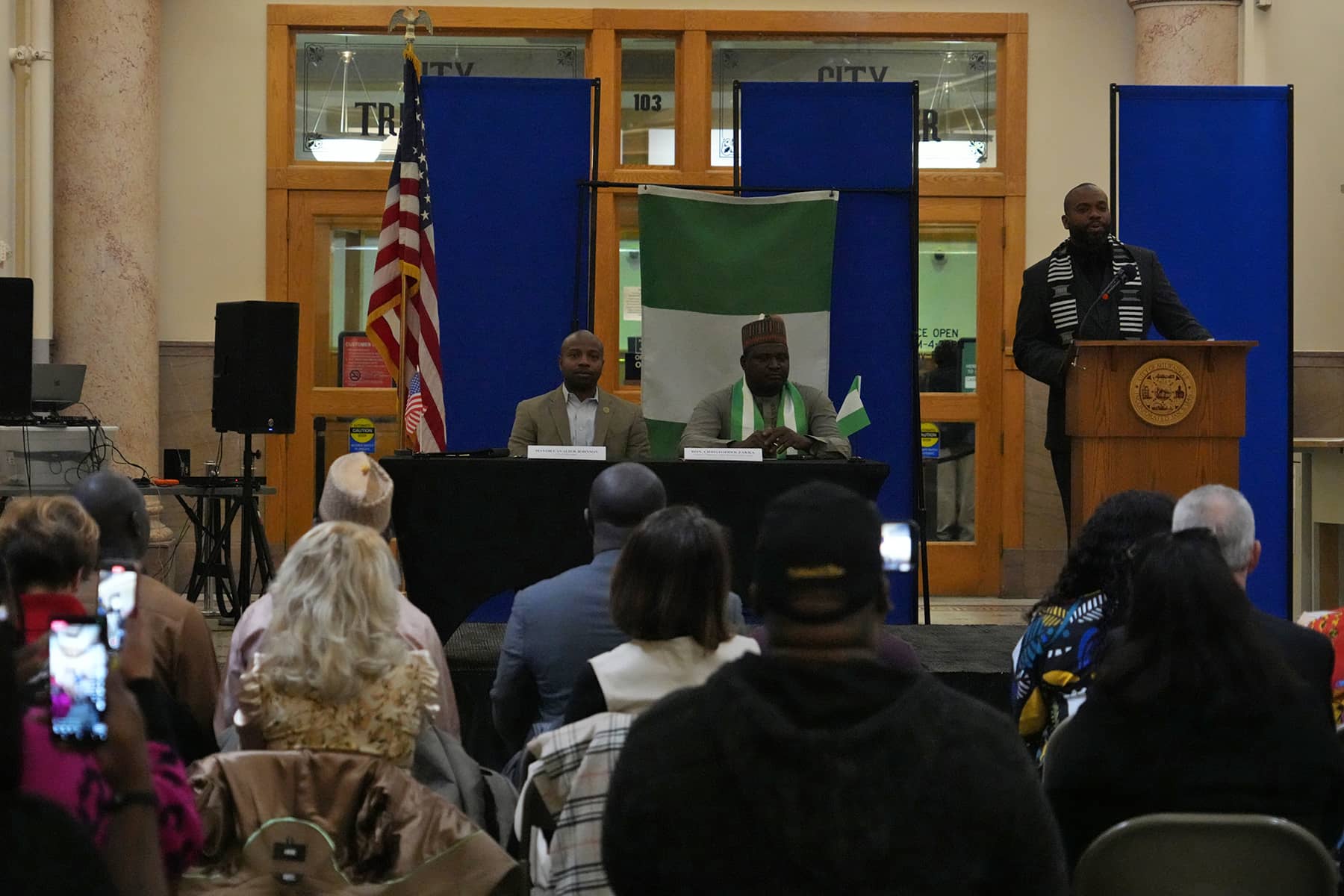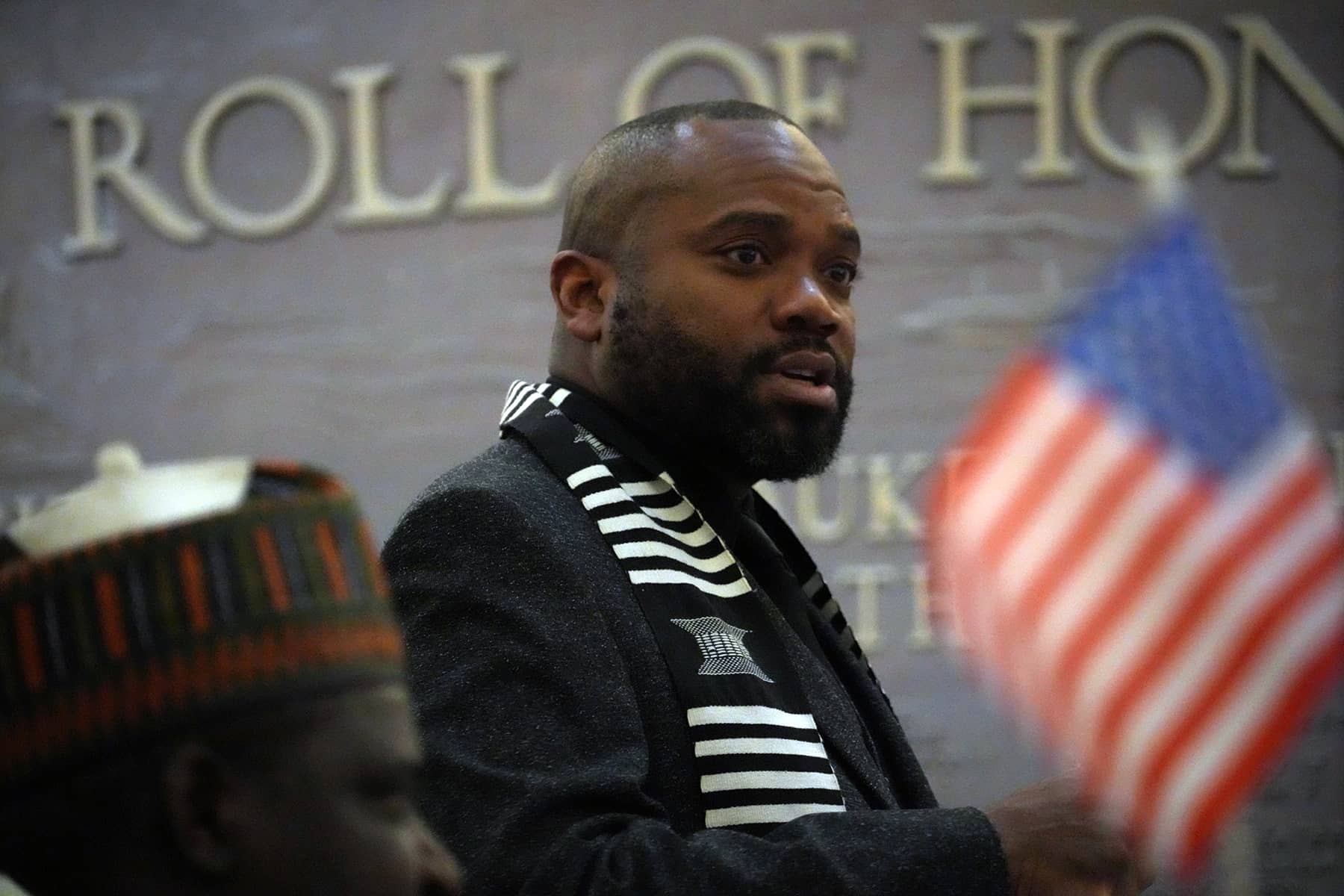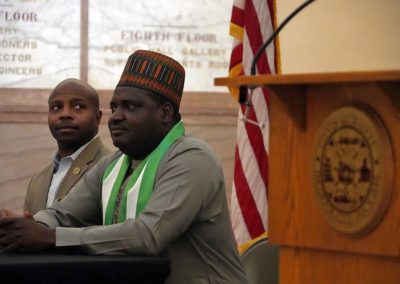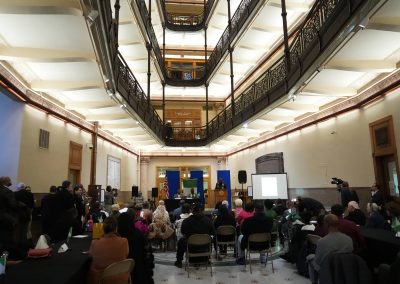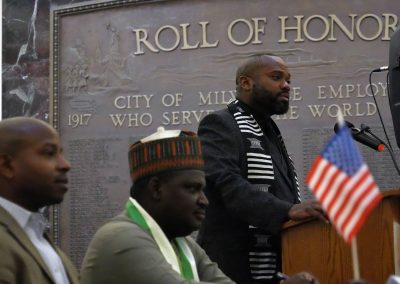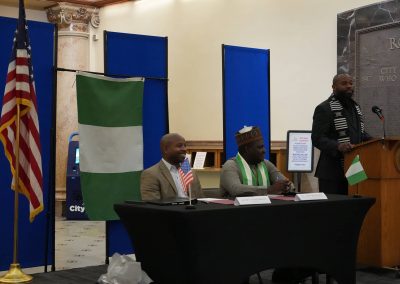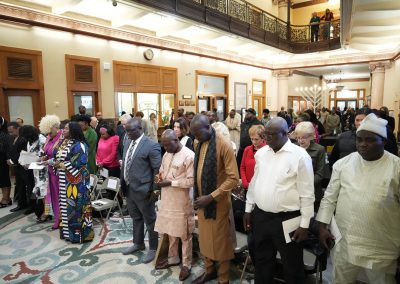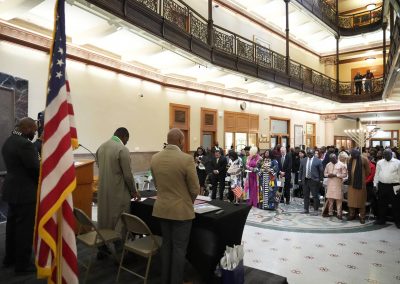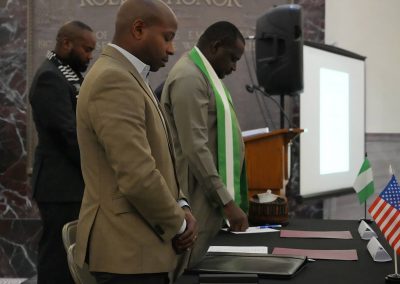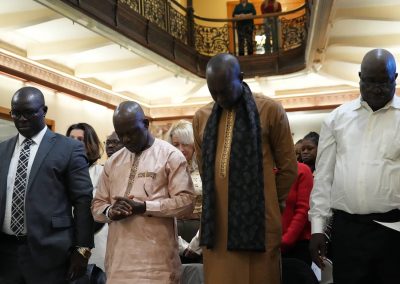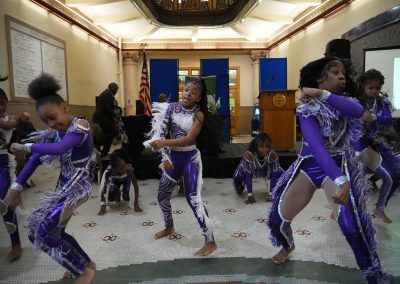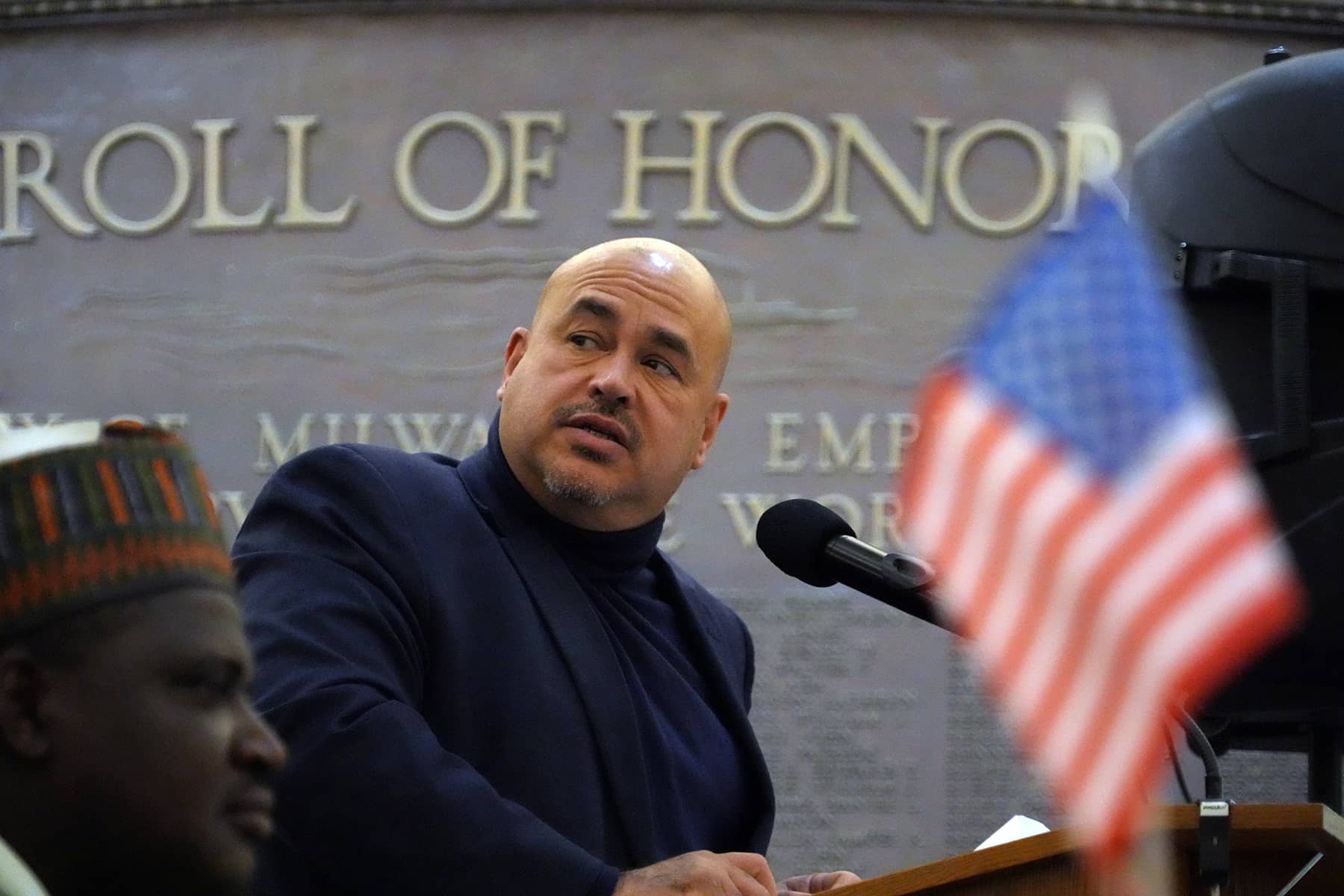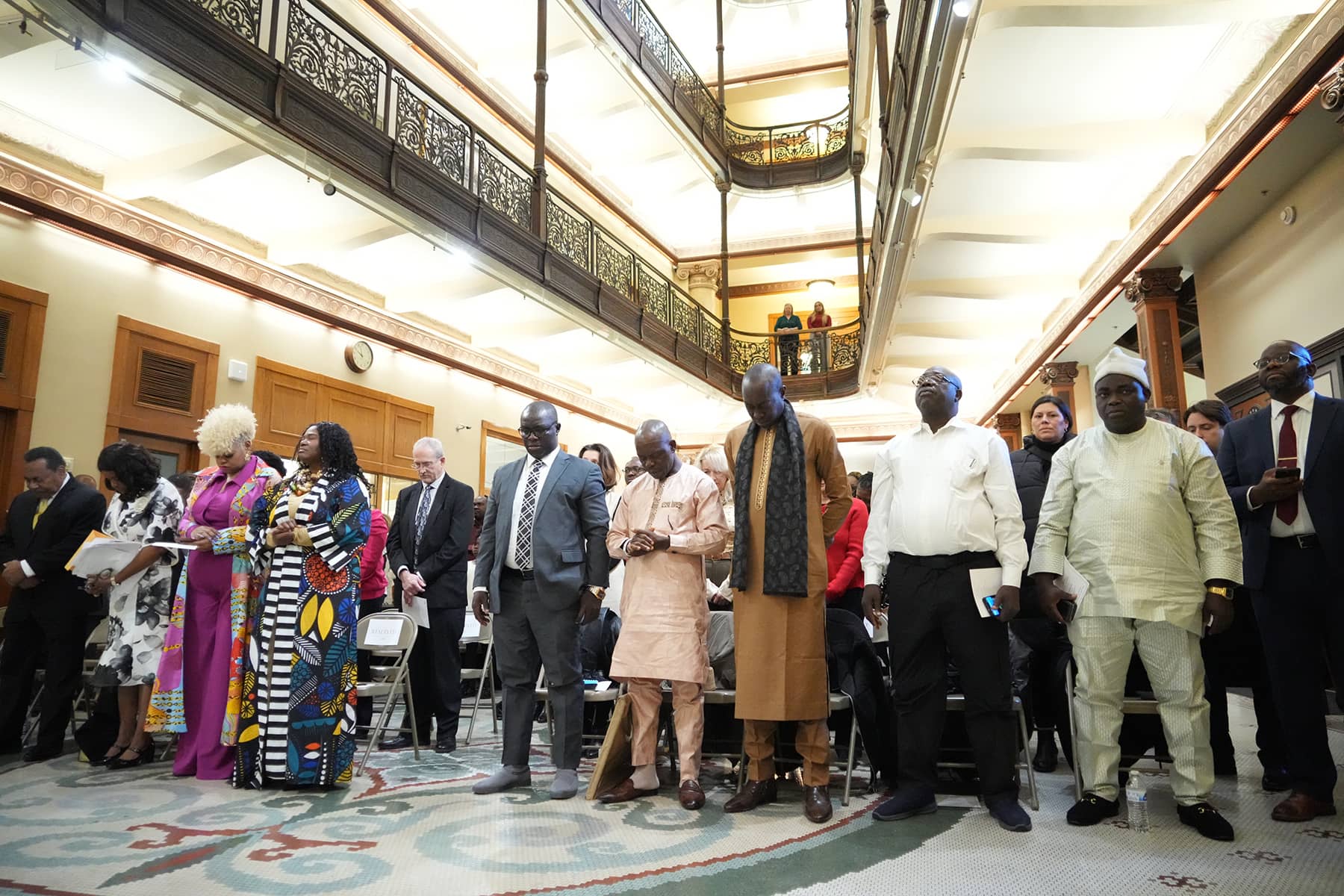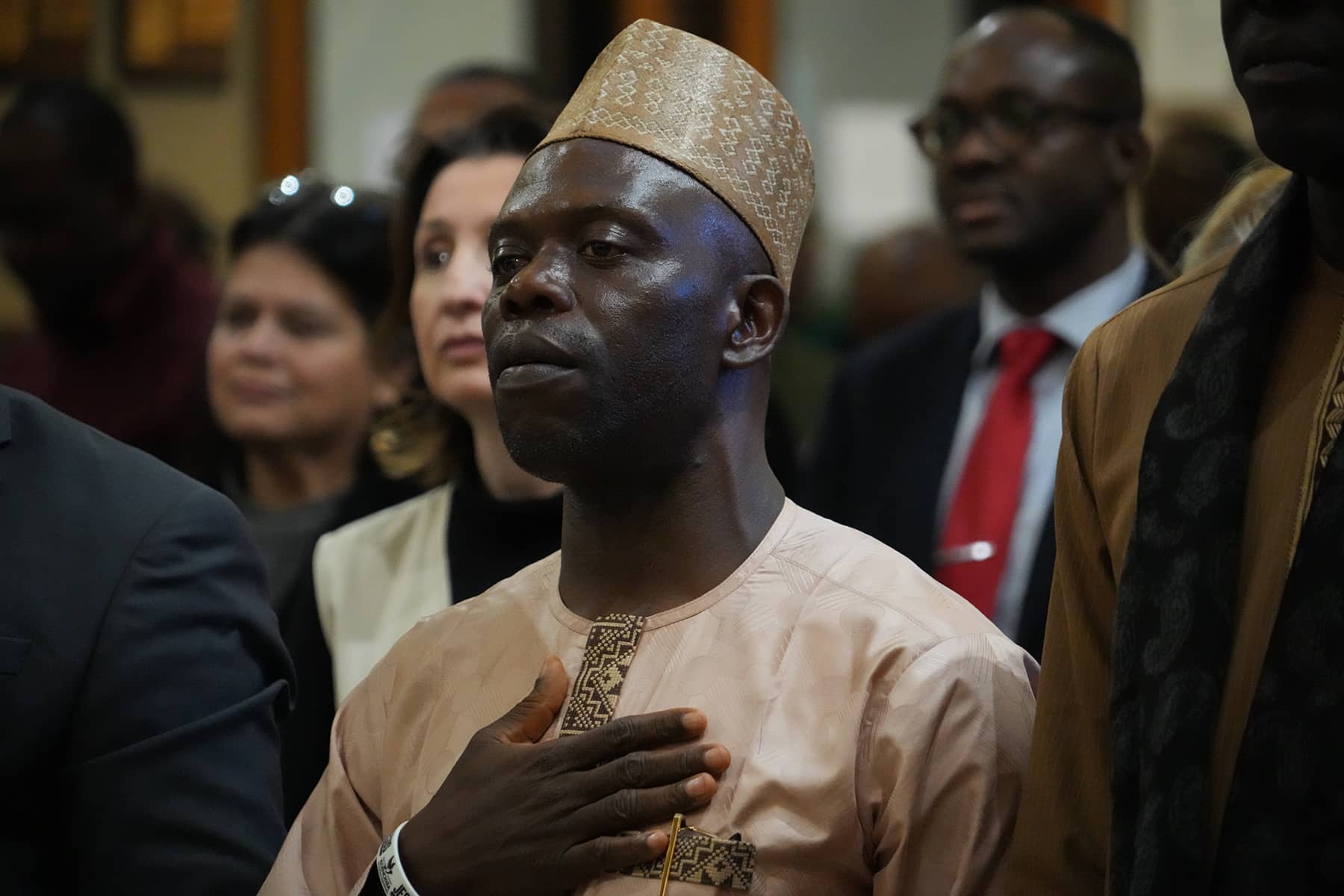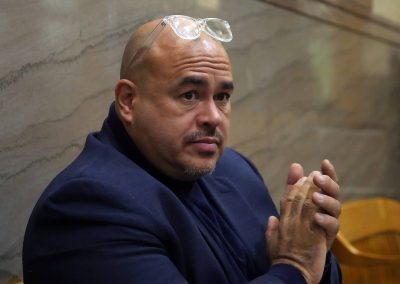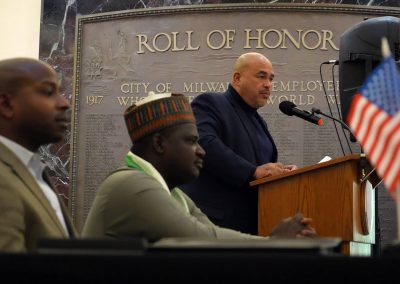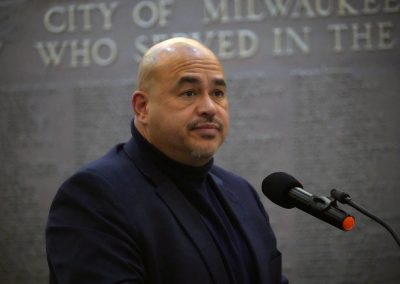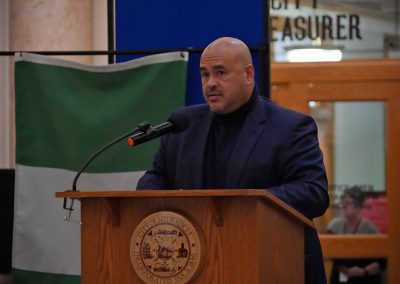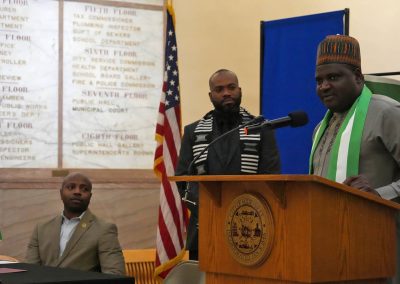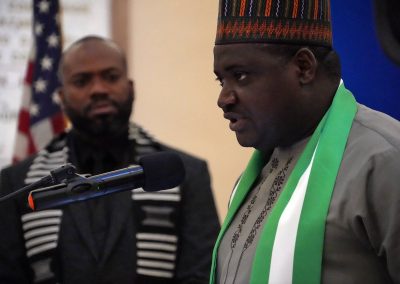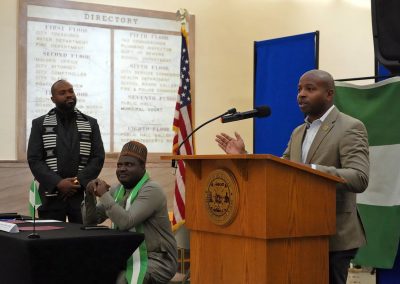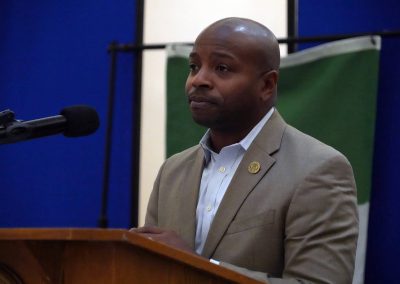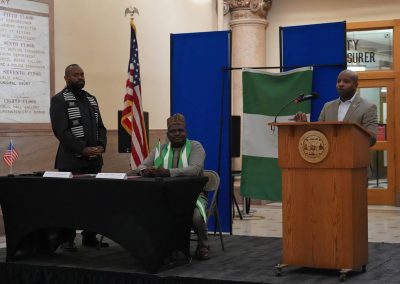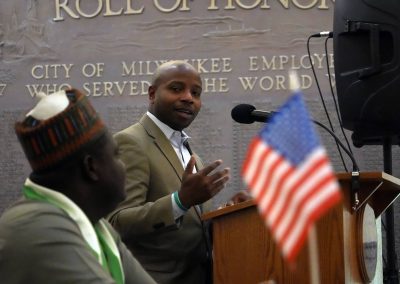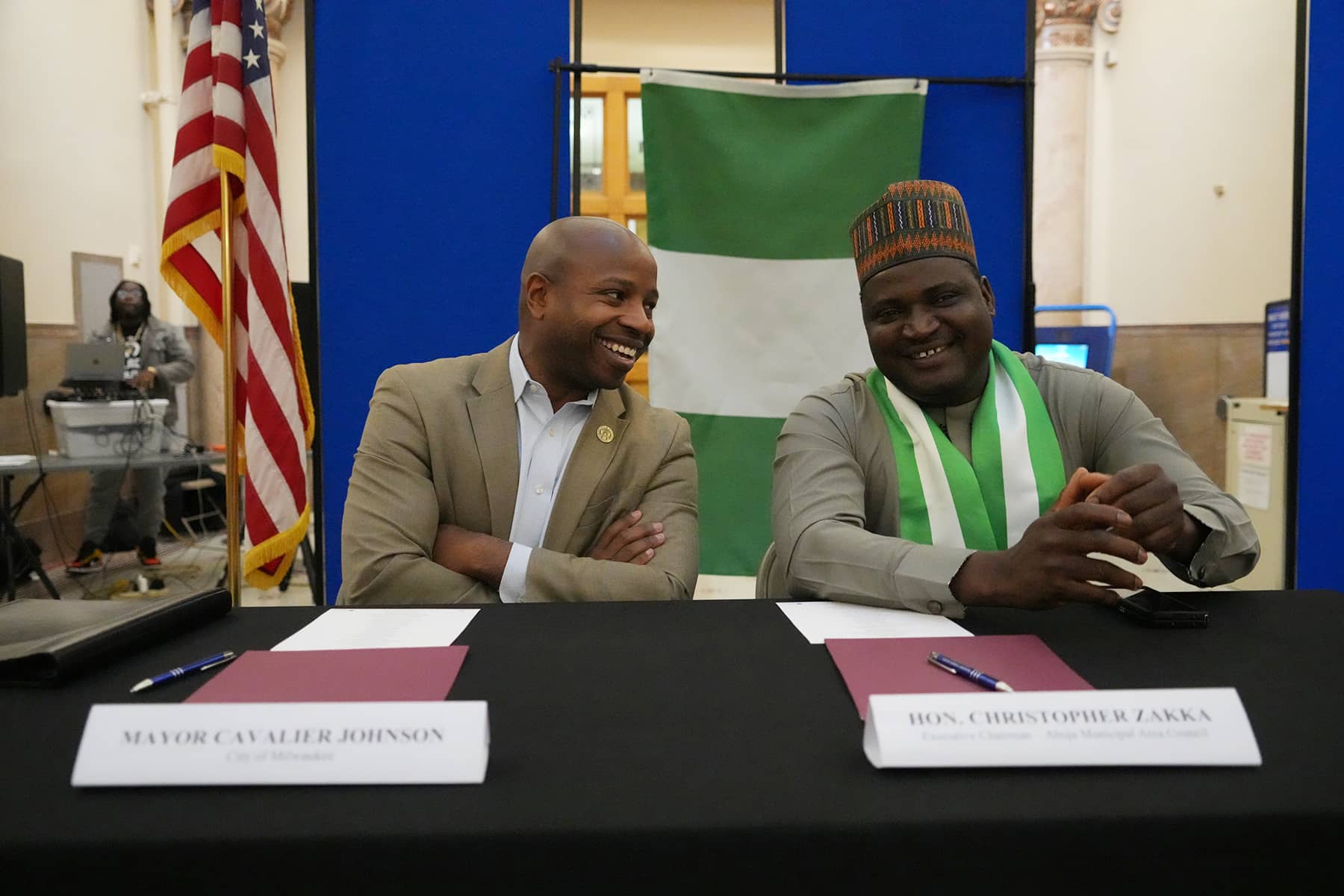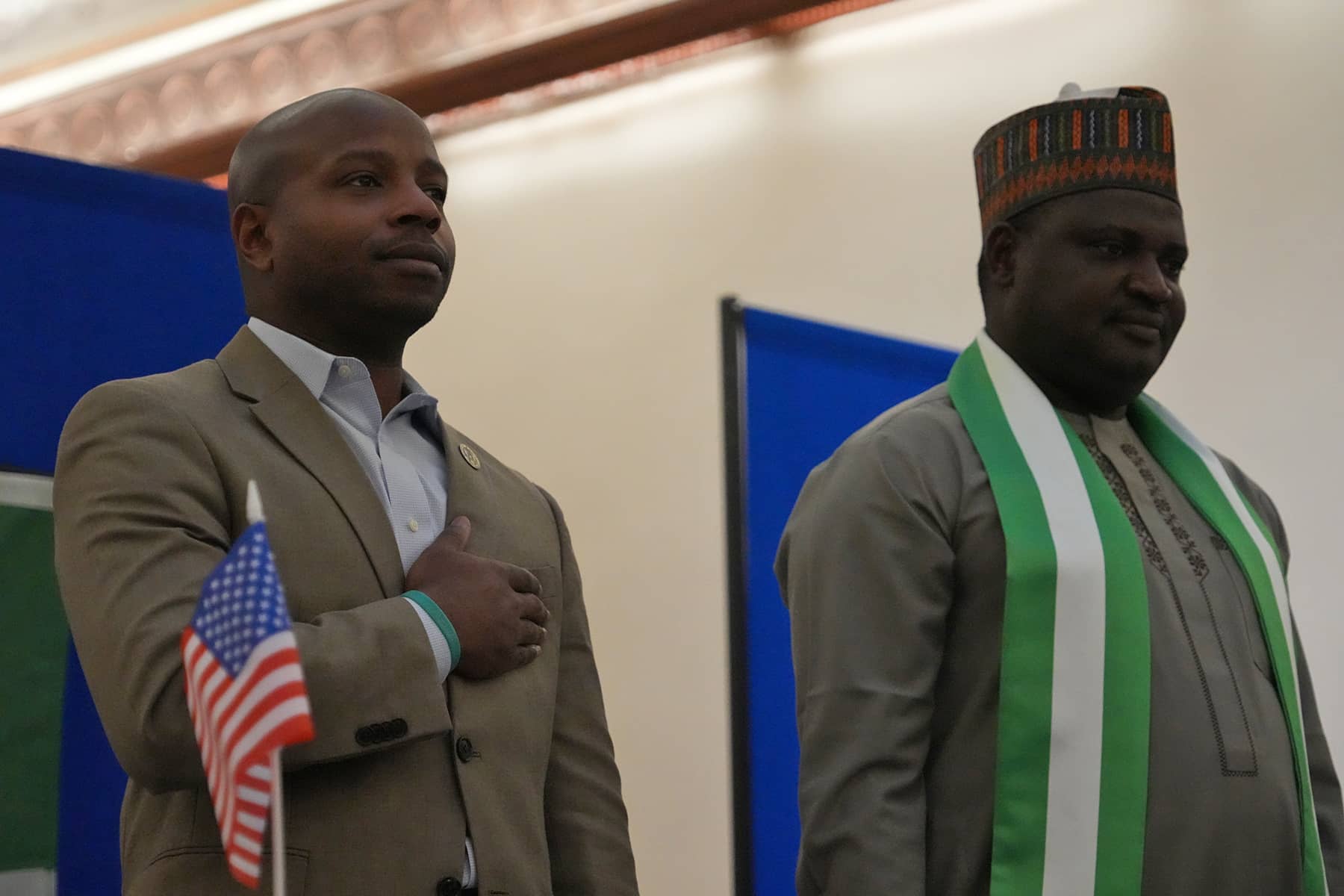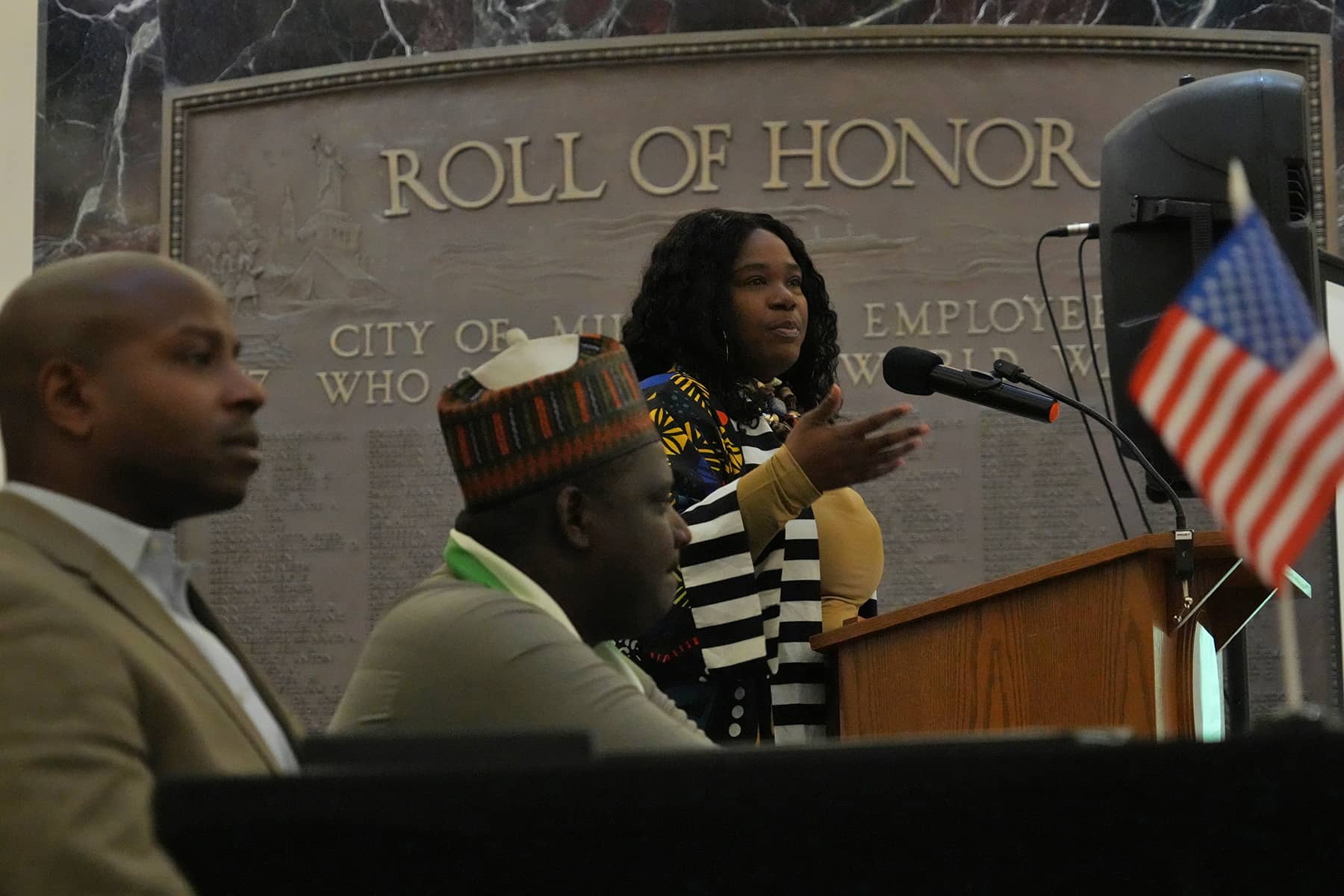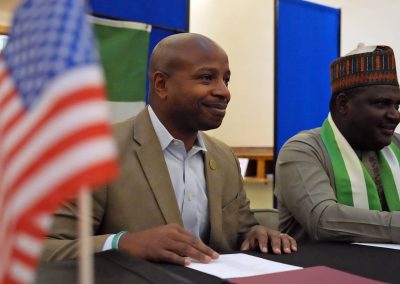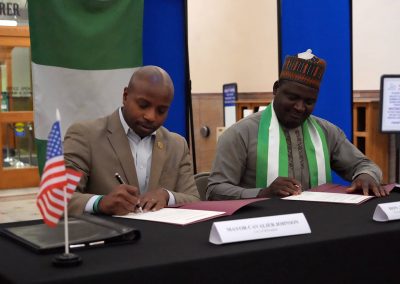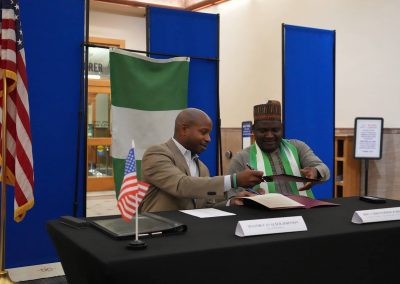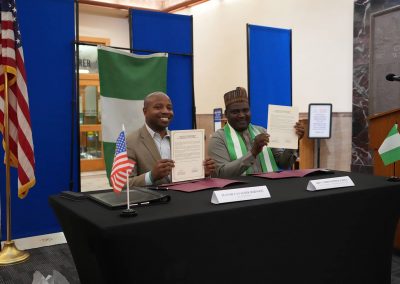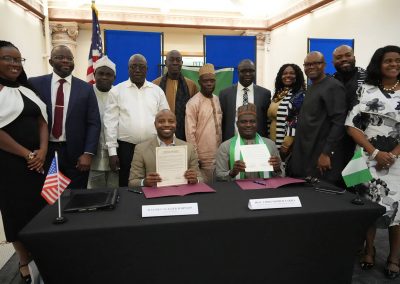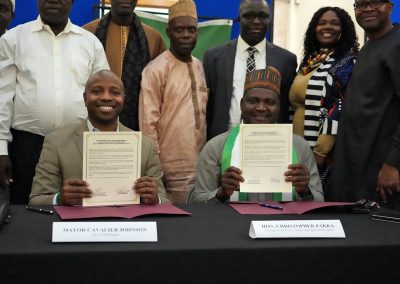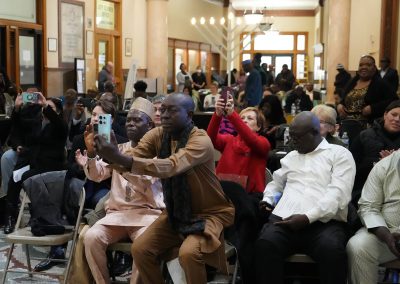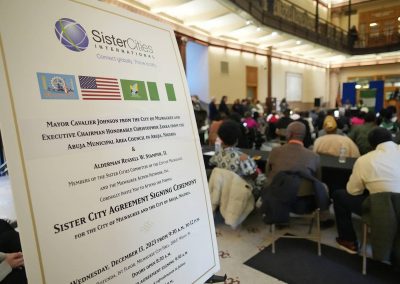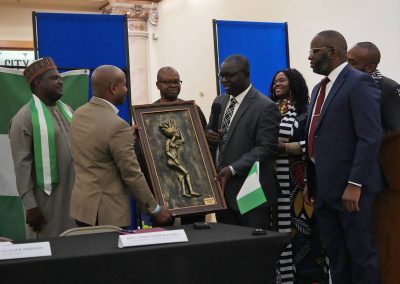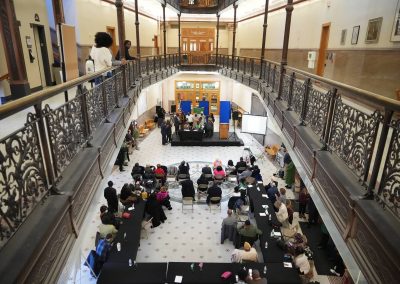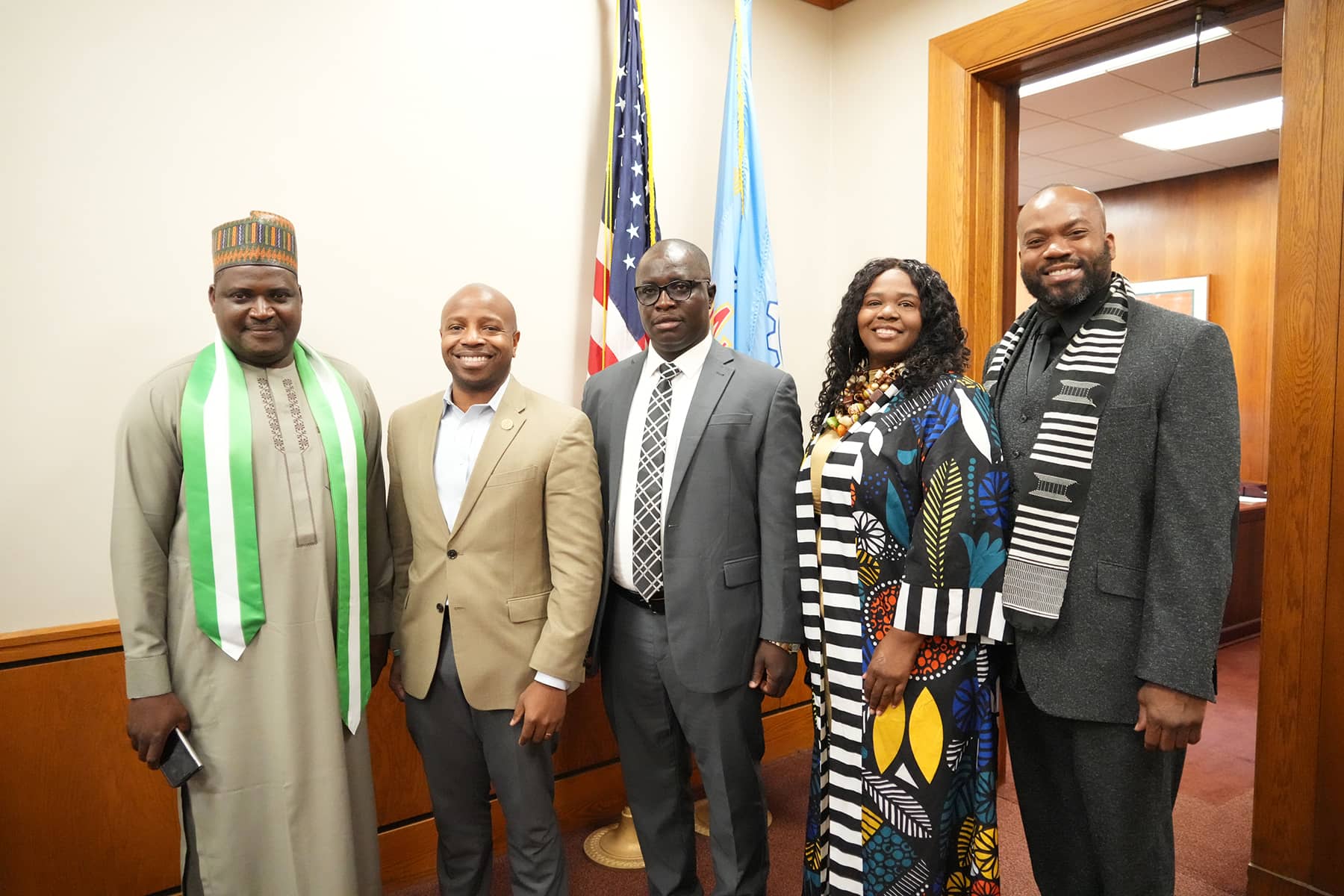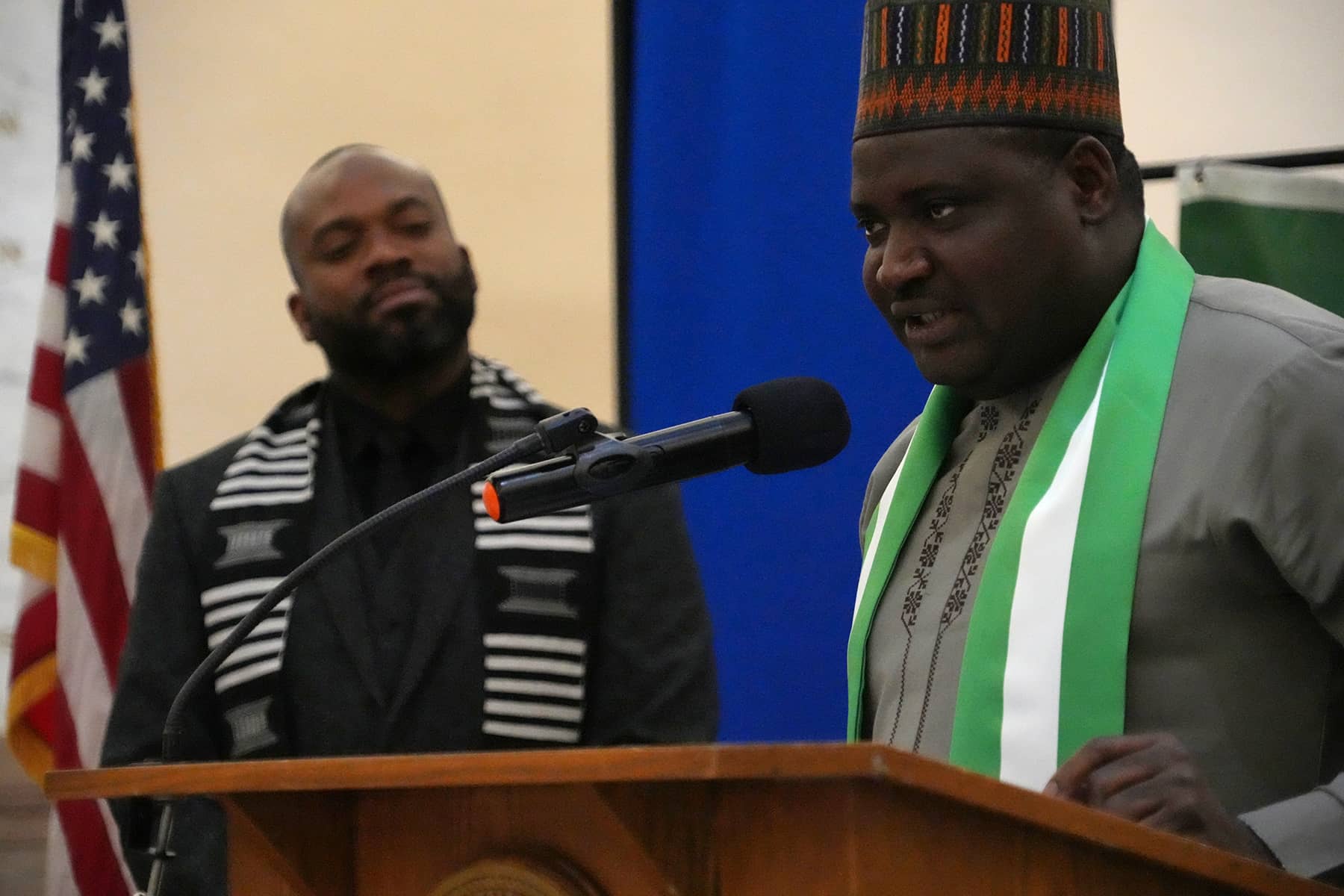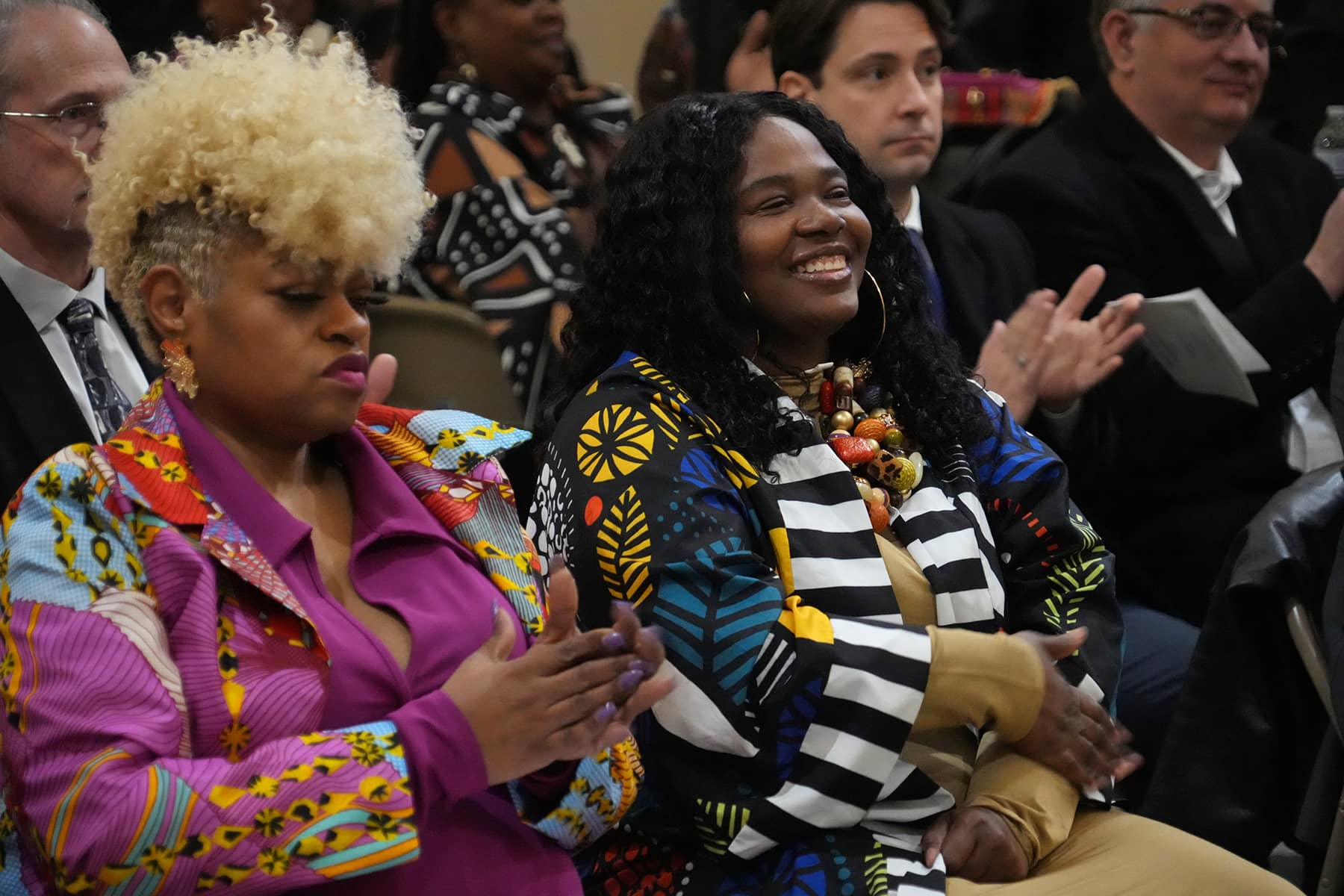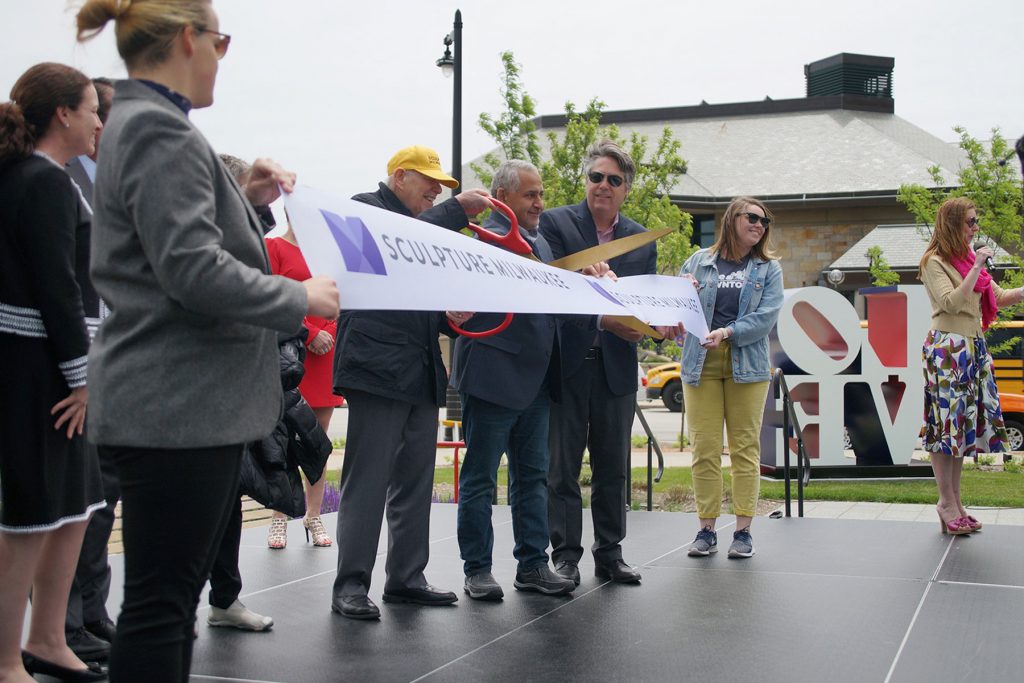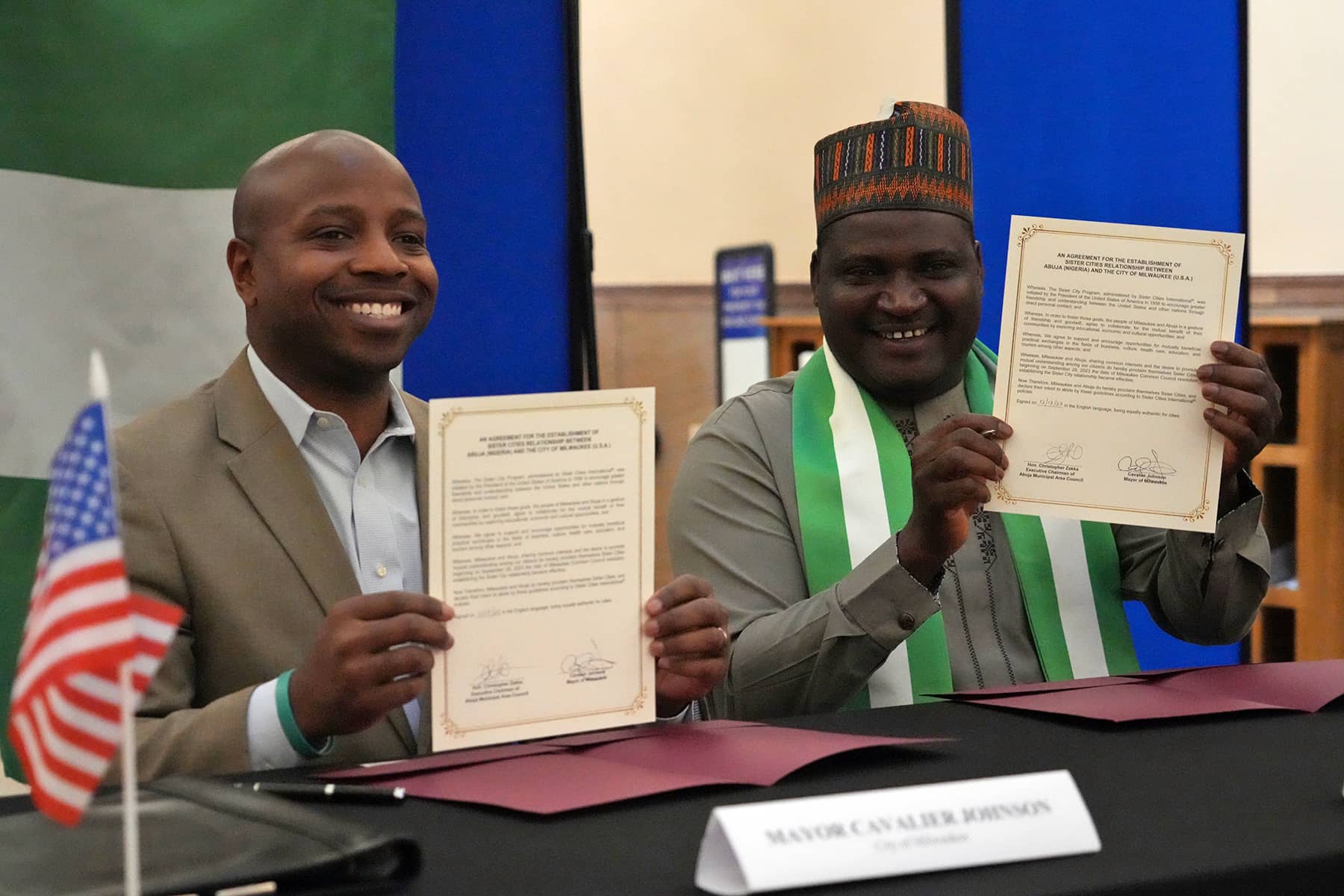
Leaders from Milwaukee and Abuja, the capital of Nigeria, met on December 13 to formally establish a Sister City relationship between the two municipalities.
The historic agreement was signed during an official ceremony at City Hall by His Honorable Christopher Zakka, the Executive Chairman of Abuja Municipal Area Council (AMAC), and Mayor Cavalier Johnson. It was the first new Sister City relationship signed by Mayor Johnson since he was elected in 2022, and also the first since 2018 – when Milwaukee became the Sister City of Irpin, Ukraine.
“We join in this arrangement with a spirit of goodwill, a spirit of respect, a spirit of cooperation, and a spirit of peace,” said Mayor Johnson. “Abuja is the capital of Nigeria … this isn’t just any regular Sister City arrangement. We’re establishing a Sister City relationship with one of the most populous cities in the world. And that’s a powerful, powerful thing.”
The December 13 signing event was highlighted by expressions of mutual respect and cooperation. The agreement represents a major step in fostering global connections between the United States and Nigeria. The partnership is also expected to enhance cultural, educational, and economic exchanges between Milwaukee and Abuja.
“We consider the United States as a progressive partner in the areas of education, good governance, security and waste management, and other business opportunity. This agreement will go a long way in uniting the two Sister Cities, and making Nigeria a land of investment,” said Executive Chairman Zakka. “I’m confident that this partnership with Milwaukee will serve both parties well, in order to improve the international standard of our students and create mutual understanding and relationship.”
During the ceremony, speakers emphasized Milwaukee’s rich cultural heritage, known for its festivals and breweries, and its reputation as a city of neighborhoods characterized by hardworking people. In addition, the agreement with Abuja was celebrated as a landmark achievement, signifying the city’s commitment to building international relationships.
“Milwaukee currently enjoys six sister city relationships across the world, on four different continents. The international partnerships promote peace and diplomacy through people-to-people relationships. Our mission is to foster cultural, educational, and economic exchanges, so we can strengthen our understanding of the world that we live in, and do business in,” said Alderman Russell W. Stamper II, Chairman of the Sister Cities Committee. “I’ve learned so much as the Sister Cities Chairman, I’ve learned that it is about drawing humanity closer together, and helping each other grow and develop internationally as a people. My hope is that we all develop a new sense of importance of these relationships, and what we can all learn from each other.”
Alderman Stamper added that while it was important to develop personal connections across countries and cultures, it was also important to have fun and make new friends. Abuja joins Milwaukee’s select group of international partnerships, and mission to enhance the local understanding of global conditions – especially for conducting business across communities. Milwaukee’s other Sister Cities include Irpin, Ukraine (March 15, 2018), Tarime District, Tanzania (November 7, 2016), Bomet County, Kenya (November 23, 2015), Zadar, Croatia (May 11, 2015), and Galway, Ireland (March 24, 2009).
The Sister City program, formally established as a concept in 1956 by President Dwight D. Eisenhower, is a global initiative designed to foster peace and understanding between nations through city-to-city partnerships. Introduced during the White House conference on citizen diplomacy, the program was Eisenhower’s way of promoting cross-cultural communication and cooperation at the municipal level, as a means to lessen the chance of future world conflicts.
Sister City relationships focus on cultural, educational, and economic exchanges, encouraging communities worldwide to learn from each other, share experiences, and work collaboratively on common issues. Over the years, the program has expanded globally, connecting thousands of cities across different continents – promoting global peace, mutual respect, and understanding through grassroots citizen involvement and municipal cooperation.
“I love building relationships, I’ll often say we build relationships for a lifetime, not just for the moment. I also think about all of the things that we can do, not just with importing and exporting products,” Dr. Sequanna Taylor, Milwaukee County Supervisor and a leader of the Milwaukee Action Network. “My focus has been making sure that the educational foundation of exchange was set in stone here. Not just with the students from Nigeria, or even those professors coming over, but also Milwaukee sending some of our youth to Nigeria, as well as some of our educators and professors.”
Dr. Taylor emphasized the historic nature of the event, explaining that it was more than a ceremonial gesture. Practical goals had been set to ensure that the partnership could bring tangible benefits to both parties. She also referenced an inspirational quote.
“Coming together is a beginning. Keeping together is progress. Working together is success.” — Henry Ford
The ceremony included acknowledgments of local officials and community leaders, reflecting the collaborative spirit of the cities. It also featured cultural presentations, prayers, and the playing of the national anthems of both Nigeria and the United States.
“I sometimes think our modern world drives us further apart. That’s why the Sister Cities is important because it’s face-to-face. It takes us to learn about places like Abuja, to learn of its history, its people, and what their hopes and ambitions are, to know much we are different and how much we have in common,” said José G. Pérez, President of the Milwaukee Common Council. “It also asks us to look into the eyes of someone else and get to know them. I’m thankful for all this program is doing to make our part of this world just a little bit smaller – so we connect.”
Officially designated as Nigeria’s capital in 1991, Abuja is a planned city that was chosen to replace Lagos as the capital due to its central location, ethnic and religious neutrality, and less congested nature. The city was strategically planned in the 1980s and built with modern urban planning techniques, resulting in well-organized infrastructure and architecture.
Abuja stands today as a symbol of national unity, and is one of the most prosperous and fastest-growing cities in Nigeria. It is known for impressive landmarks such as the Aso Rock, the National Assembly, and the Nigerian Presidential Complex. Abuja’s modern condition reflects a mix of political significance and rapid urban development, boasting expansive boulevards, lush greenery, and a rising skyline.
The city continues to attract a diverse population, contributing to its vibrant cultural and economic life, while also facing challenges typical of fast-growing metropolitan areas, including urban sprawl and infrastructure development.
© PHOTO NOTE: All the original editorial images published here have been posted to mkeind.com/facebook. That Facebook collection of photos contains the Milwaukee Independent copyright and watermark for attribution, and may be used for private social media sharing. Do not download and repost images directly from this page.

